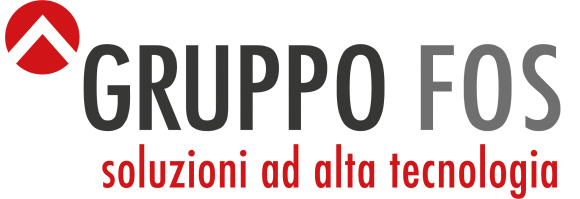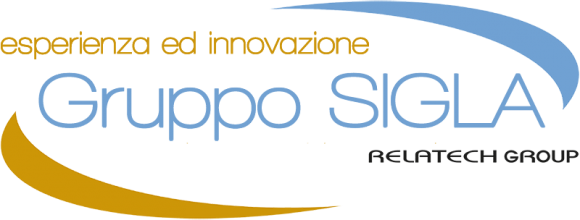The IEEE Healthcom 2022 Conference will host the following workshops:
Thick Data Analytics for Healthcare Applications - TDAEH 2022
Security and Reliability of eHealth Information Systems - S&REHIS 2022
Workshop on Thick Data Analytics for Healthcare Applications - TDAEH 2022
Organizers
Professor Sabah Mohammed, Computer Science Department at Lakehead University, Canada
Professor Simon James Fong, Department of Computer and Information Science, University of Macau, Macau SAR, China
Professor Jinan Fiaidhi, Computer Science Department, Lakehead University, Canada
Professor Honghao Gao, Faculty of Computer Engineering and Science, Shanghai University, China
Overview
Detecting and analyzing patient insights from social media enables healthcare givers to better understand what patients want and also to identify their pain points. Healthcare institutions cannot neglect the need to monitor and analyze popular social media outlets such as Twitter and Facebook. However, healthcare givers need to be able to engage with their patients and adapt to their preferences and build convincing evidence based decisions. Experience shows the neither the sole physician-based decision nor the data-driven decision made through clinical pathways is enough to make the best-in-class care solutions. Social media and healthcare are a powerful combination. Social networks have become an important health and information resource as patients use it to access health-related information, share their medical stories and experiences with other patients, and communicate with healthcare providers for seeking healthcare supports. It opens a great opportunity for the development and application of artificial intelligence techniques and data mining approaches to study social media data for health-related issues and promoting healthcare. However, analyzing social media relying on simplistic textual analytics that use of big data technologies to learn and mine consumer/patient insights is no longer sufficient as most of these analytics utilize sort of bag-of-words counting algorithms. The majority of projects utilizing big data analytics have failed due to the obsession with metrics at the expense of capturing the customer's perspective data, as well as the failure in turning consumer insights into actions. Most of the consumer insights can be captured with qualitative research methods that work with small, even statistically insignificant, sample sizes. Employing qualitative analytics along with other quantitative analytics can provide powerful actionable intelligence which acquires understanding to broad questions about the consumer needs in tandem with analytical power. The start is to identify the relationships between constituents of the healthcare pain points as echoed by the social media conversations in terms of sociographic network where the elements composing these conversations are described as nodes and their interactions as links. In this part, conversation groups of nodes that are heavily connected will be identified representing what we call conversation communities. By identifying these conversation communities several consumer hidden insights can be inferred from using techniques such as visualizing conversation graphs relevant to given pain point, conversation learning from question answering, conversations summaries, conversation timelines, conversation anomalies and other conversation pattern learning techniques. These techniques will identify and learn the patient insights without forgetting from the context of conversation communities, are tagged as "thick data analytics". Additionally machine learning methods can be used as assistive techniques to learn from the identified thick data and build models around identified thick data. With the use of transfer learning we also can fine tune these models with the arrival of new conversations. This workshop aims at providing a collaborative platform for like-minded researchers from multi-disciplines (academia, clinicians, hospitals, service providers etc.) come together to share ideas, join forces and work together towards this existing direction of thick data research.
Scope of Papers
Including but not limited to the following:
• Data analytics and Healthcare applications
• Patient insights discovery
• Graph based algorithms
• Graph-based machine learning
• Graph-based transfer learning
• Explainable AI
• Patient preferences and prognosis modelling
• Thick data algorithms and technology
• Conversation communities modelling
• Social media analysis and mining
• Thick data deep learning
• SaaS and cloud-based medical service provision
• SaaS and cloud-based thick data platforms
Important Dates
Paper Submission: 1 August 2022
Notification of Acceptance: 15 August 2022
Final Manuscript (Camera ready): 30 August 2022
Submission Guidelines
Submissions shall be done via EDAS system using this LINK.
The 6th International Workshop on Security and Reliability of eHealth Information Systems - S&REHIS 2022
Organizers
Kashif Saleem, Center of Excellence in Information Assurance (CoEIA), King Saud University, Saudi Arabia
Amjad Gawanmeh, Department of Electrical Engineering, College of Engineering and IT, University of Dubai, UAE
Muhammad Imran, School of Engineering, Information Technology and Physical Sciences, Federation University, Australia
Jalal Al-Muhtadi, Center of Excellence in Information Assurance (CoEIA), King Saud University, Saudi Arabia
Overview
Health Informatics presents complex and challenging issues to computer scientists, social scientists, law experts and policy makers. Appropriate healthcare informatics provisioning involves processing specialized user centric knowledge that is private and of sensitive nature. Electronic health record systems provide opportunities for information sharing which promise to improve healthcare services, for both healthcare providers and healthcare seekers. However, appropriate information management measures are essential for privacy preservation and reliability.
Traditional measures may not be suitable for eHealth systems because, in eHealth systems, the roles of all stakeholders are not well defined. Healthcare professionals require ready access to as much information as possible to support informed decision making. However, patients may want to exercise control over the entities granting controlled access to their personal health information, with particular concerns for information privacy. Balancing these competing concerns is a major challenge in the implementation of successful e-Health systems.
Scope of Papers
This workshop will focus on the major challenge in Health Informatics. We seek papers addressing the following issues in e-Health systems, but are not limited to
• Role of Big Data in eHealthcare
• Role of Internet of Things in eHealthcare
• Access Control
• Vulnerability assessment
• Mobile Identity management
• Authentication, security access policies
• Privacy-respecting Authentication
• Privacy issues in the Internet of Things
• Privacy issues in wireless networks
• Security Management of M2M network
• Testing and verification of eHealth
• Simulation based methods in eHealth
• Security and Privacy issues in eHealth
• Formal methods in eHealth
• Verification of eHealth software and equipment
• Performance evaluation of eHealth systems
• Open issues, surveys on eHealth
• Secured network architectures for eHealth
• eHeathcare Forensics and Investigation
• Remote and wireless-based Biometrics system
• Mobile malware
• Mobile botnets
• Security and privacy issues in Smartphones
• Intrusion and fraud detection
• Socio-economic issues
Important Dates
Paper Submission: 1 August 2022
Notification of Acceptance: 15 August 2022
Final Manuscript (Camera ready): 30 August 2022
Submission Guidelines
Submissions shall be done via EDAS system using this LINK.








